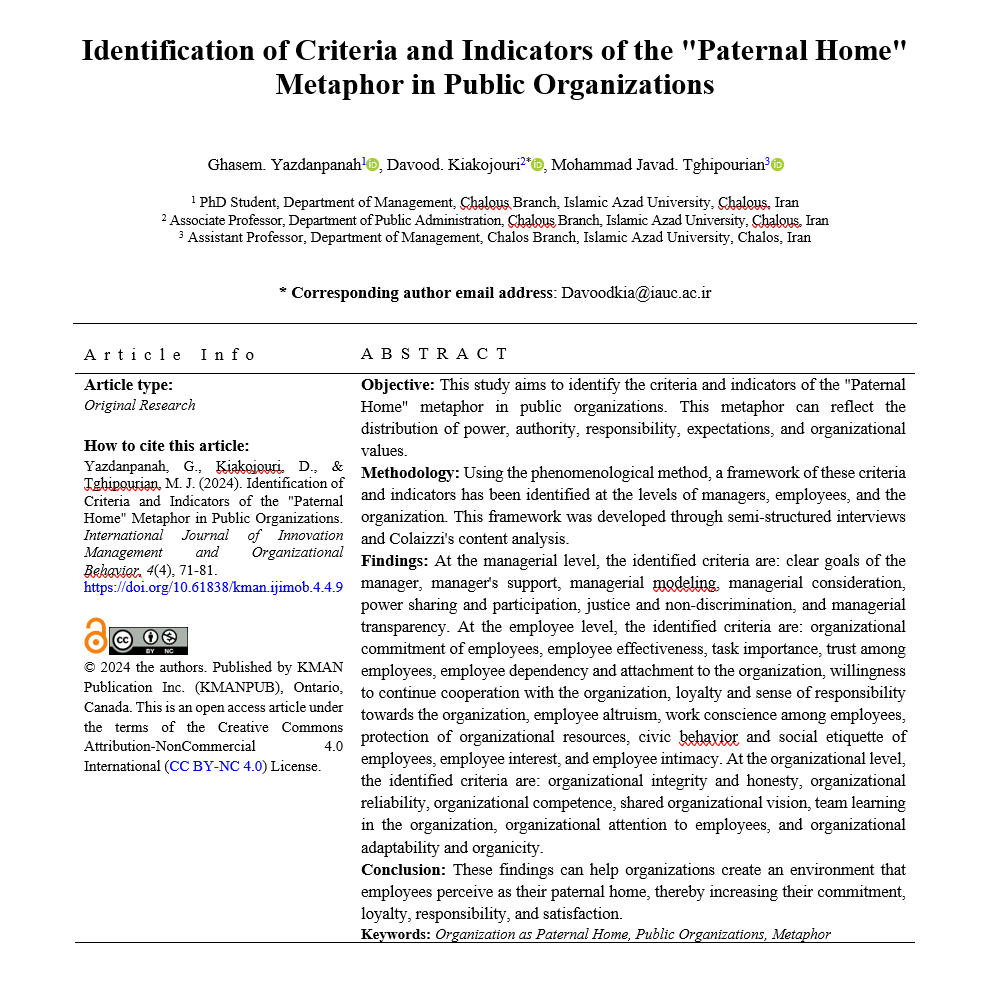Identification of Criteria and Indicators of the "Paternal Home" Metaphor in Public Organizations
Keywords:
Organization as Paternal Home, Public Organizations, MetaphorAbstract
Objective: This study aims to identify the criteria and indicators of the "Paternal Home" metaphor in public organizations. This metaphor can reflect the distribution of power, authority, responsibility, expectations, and organizational values.
Methodology: Using the phenomenological method, a framework of these criteria and indicators has been identified at the levels of managers, employees, and the organization. This framework was developed through semi-structured interviews and Colaizzi's content analysis.
Findings: At the managerial level, the identified criteria are: clear goals of the manager, manager's support, managerial modeling, managerial consideration, power sharing and participation, justice and non-discrimination, and managerial transparency. At the employee level, the identified criteria are: organizational commitment of employees, employee effectiveness, task importance, trust among employees, employee dependency and attachment to the organization, willingness to continue cooperation with the organization, loyalty and sense of responsibility towards the organization, employee altruism, work conscience among employees, protection of organizational resources, civic behavior and social etiquette of employees, employee interest, and employee intimacy. At the organizational level, the identified criteria are: organizational integrity and honesty, organizational reliability, organizational competence, shared organizational vision, team learning in the organization, organizational attention to employees, and organizational adaptability and organicity.
Conclusion: These findings can help organizations create an environment that employees perceive as their paternal home, thereby increasing their commitment, loyalty, responsibility, and satisfaction.
Downloads

Downloads
Additional Files
Published
Issue
Section
License
Copyright (c) 2024 Ghasem Yazdanpanah, Davood Kiakojouri, Mohammad Javad Tghipourian (Author)

This work is licensed under a Creative Commons Attribution-NonCommercial 4.0 International License.















